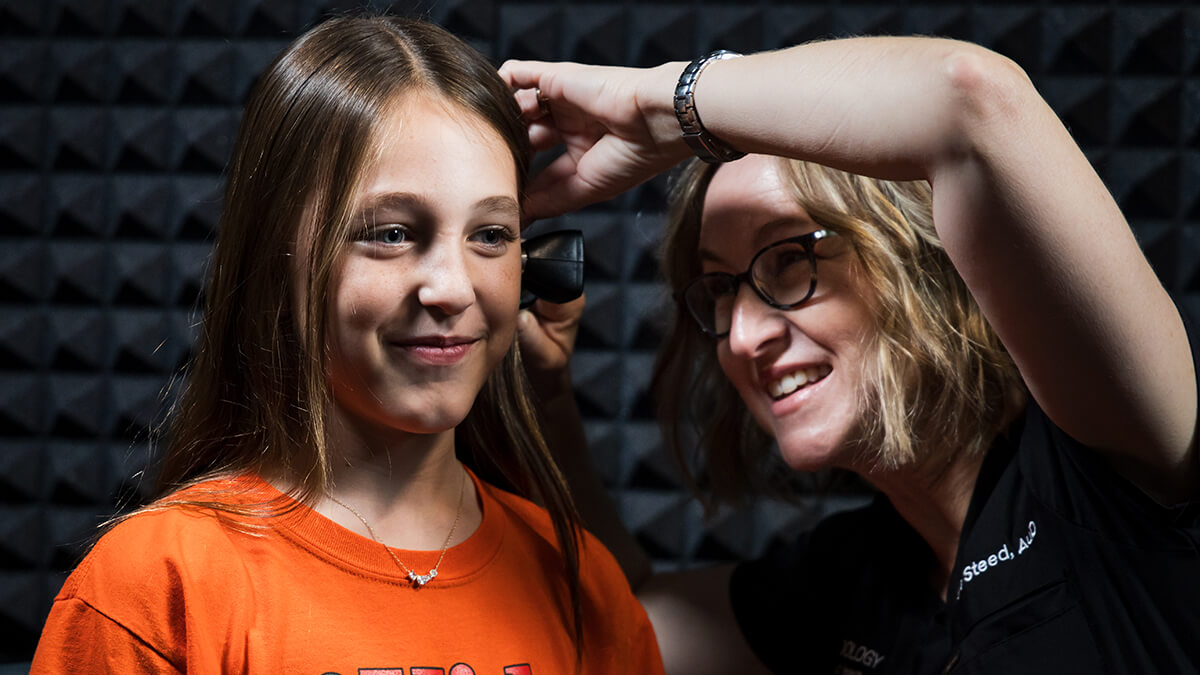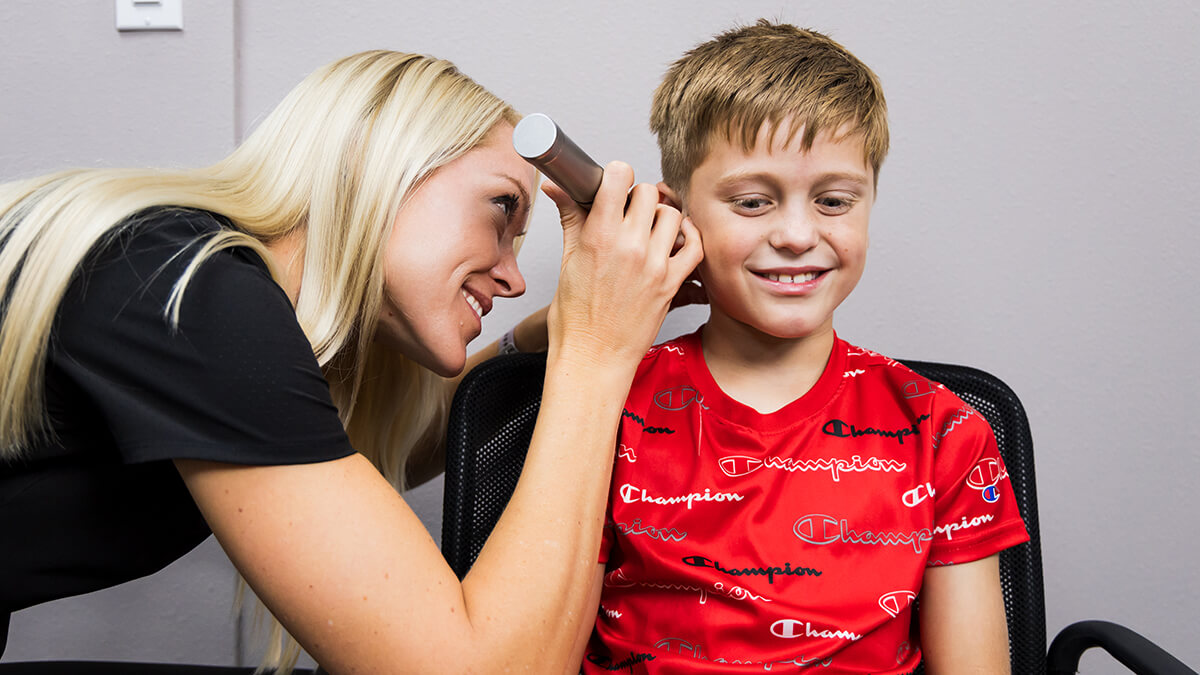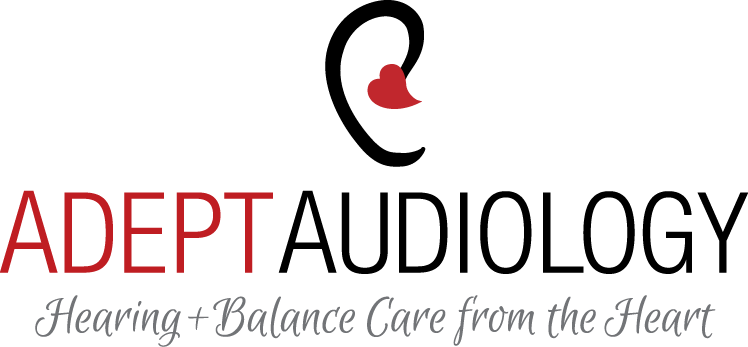Pediatric Hearing Health
Causes of Infant and Childhood Hearing Loss
Newborn Hearing Screenings
Early Detection Matters


One of the most significant advancements in pediatric hearing health is the introduction of newborn hearing screenings. These screenings are typically conducted shortly after birth, allowing healthcare providers to identify potential hearing issues in infants. Early detection and intervention are vital for ensuring your child’s developmental and future academic success.
Newborn hearing screenings are completely non-invasive. During the screening, we’ll place a tiny earplug in your infant’s ears. We’ll play clicking tones and our equipment will detect an echo that returns from their auditory system.
Symptoms Hearing Loss in Children
Children with hearing loss may exhibit delays in speech and language development, as they struggle to hear and imitate sounds. If your little one has hearing loss, they might not respond to voices or sounds as expected, even when they are calm and alert. You might also notice that your child doesn’t turn their head toward sounds or voices or wants the television volume to be louder than others in the home.
Children with hearing loss may appear inattentive or easily distracted, as they struggle to focus on sounds and conversations. If your child ignores you or doesn’t respond when you call them, they may have hearing loss.
Auditory Processing Disorder (APD) Testing
Auditory Processing Disorder (APD) is a condition in which the brain has difficulty processing auditory information.
Children with APD may have normal hearing but struggle to make sense of sounds, especially in complex or noisy environments. APD can impact speech and language development, academic performance, and even social interactions.
APD testing and treatment can help your child thrive. APD evaluations include comprehensive testing with multiple subtests to evaluate how your child’s brain is processing auditory information. Identifying specific areas of difficulty will determine what strategies and treatment needed to support your child's learning and communication needs.
Our Pediatric Hearing Health Services
At Adept Audiology, we are dedicated to providing comprehensive pediatric hearing health services, ensuring that children receive the care and support they need to thrive. Our services include:
Reach out today!

